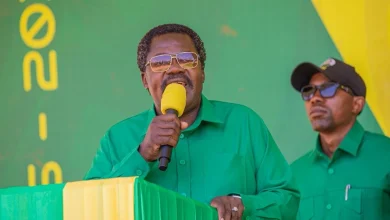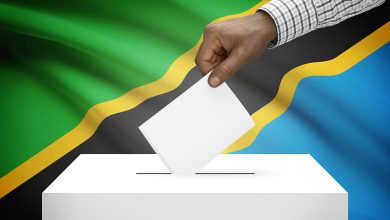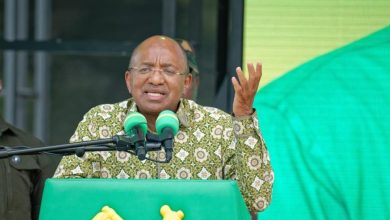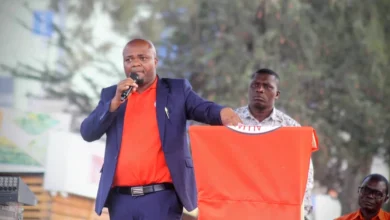KNOW YOUR CANDIDATE: Mr Yustas Rwamugira TLP Party Presidential Aspirant
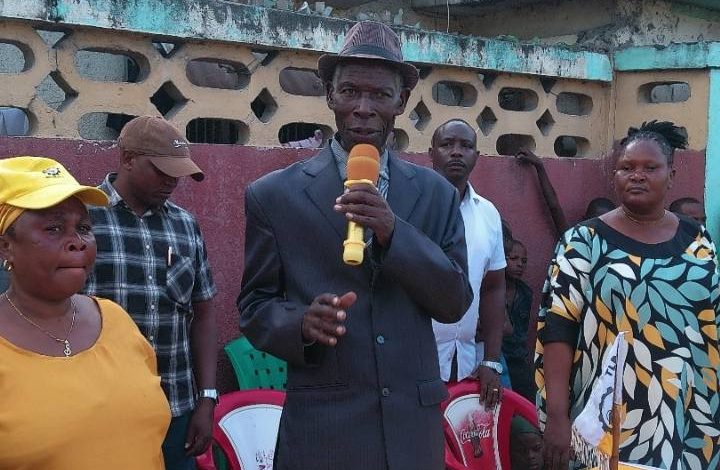
KAGERA: VETERAN politician Mr Yustas Rwamugira, with decades of grassroots experience, is carrying the banner of the Tanzania Labour Party (TLP) into the 2025 General Election with the party entering the race renewed and determined to compete for national leadership under his candidacy.
His personal journey, political background and manifesto pledges reflect not only his vision for governance, but also the priorities of a party that positions itself as a defender of peace, social justice and citizen centered development.
Born in 1949 in Kiwera Village, Muleba District, Kagera Region a part of Tanzania long known for its fertile agricultural land and cultural diversity.
He pursued his studies at a Community Development College and later trained at a teachers’ training college, graduating in 1973.
His education not only prepared him for a teaching career but also instilled in him the principles of community development, selfreliance and grassroots mobilisation values that would later become central to his political journey.
Rwamugira’s political career began with the Tanganyika African National Union (TANU), the party that spearheaded the struggle for independence under the leadership of Julius Kambarage Nyerere.
Later, as TANU merged with the Afro-Shirazi Party to form Chama Cha Mapinduzi (CCM), Rwamugira continued to serve actively, particularly as a leader among youth groups where he developed a reputation as a committed organiser and passionate defender of citizen rights.
When Tanzania embraced multiparty democracy in the 1990s, it transitioned to the National Convention for Construction and Reform (NCCR– Mageuzi).
He quickly rose to prominence, serving as Ilala District Secretary and a member of the party’s National Executive Council.
His organisational skills and ability to energise candidates made him a key figure within NCCR, though internal disputes in 1999 forced him to seek a new political home. That same year, Rwamugira joined the Tanzania Labour Party (TLP), where he steadily climbed the ranks.
Over the years, he held a wide range of positions including constituency, district, regional and national secretarial roles, eventually serving as Deputy Secretary-General and today as the party’s SecretaryGeneral.
Over the past two decades, he has been instrumental in shaping TLP’s organisational structure and electoral strategies.
Rwamugira recalls that in 2000, TLP achieved a breakthrough under his mobilisation efforts, winning six parliamentary seats, several special seats and more than 100 councillor positions. This milestone demonstrated the party’s potential
beyond being a minor opposition outfit. His decision to contest the presidency is driven by both his long political experience and his conviction that every citizen has a constitutional right to seek the highest office.
He described his candidacy as the culmination of decades spent understanding the challenges of Tanzanian society, from the struggles of rural farmers to the demands of modern urban voters.
His central motivation lies in correcting systemic imbalances and championing the voices of ordinary Tanzanians.
He believes that the Labour Party, under his leadership can provide a fresh alternative grounded in fairness, inclusivity and practical development solutions.
In his view, the main foundation of TLP’s agenda is peace, stability and citizen security.
He strongly condemned political actors who incite violence during elections and insists that TLP will not tolerate abusive language among politicians.
For him, peace is the key to prosperity and his government will safeguard it at all costs. Agriculture stands as the backbone of his campaign agenda.
He noted that Tanzania’s available land must be used to create employment, especially for the youth.
His proposals include expansion of irrigation farming to guarantee food security, enabling farmers to access agricultural inputs directly without middlemen and the building of modern infrastructure to link farms to markets so as to reduce postharvest losses.
ALSO READ: KNOW YOUR CANDIDATES: Mr Costa Kibonde, Makini Party Presidential Aspirant
He also emphasises the creation of reliable export markets while strengthening domestic value chains that can allow Tanzanians to benefit more directly from their produce.
On mining, Rwamugira pledges a more transparent and nationally beneficial system. His plan includes ensuring that minerals are well-managed and accounted for, with revenues directed into national development.
He also vows to employ local experts to survey and supervise mining operations while curbing exploitative practices by foreign companies and prioritising local participation in extraction and trade. Tourism is another priority area in his manifesto.
He pledged to increase tourist arrivals by upgrading national parks, investing in hospitality infrastructure and marketing Tanzania globally as a premier destination. For him, tourism not only generates foreign exchange but also supports conservation efforts and community livelihoods.
Perhaps the most ambitious part of his vision is education. He vows to provide free education from nursery to university while introducing a complete overhaul of the national curriculum.
Mr Rwamugira said his government will prioritise practical learning over purely theoretical instruction, equipping youth with handson skills in agriculture, industry and entrepreneurship and ensuring that graduates emerge with the ability to create jobs rather than simply seek them.
He also placed strong emphasis on universal healthcare.
His proposals include establishing a universal health insurance scheme covering children, parents, the elderly and informal sector workers such as bodaboda riders and bajaji operators.
He pledged to introduce a health card for every citizen, guaranteeing access to essential services and abolishing consultation fees in public hospitals to prevent financial barriers from denying citizens treatment.
For him, healthcare is a right, not a privilege. Building on achievements of past governments, Rwamugira pledges to upgrade transport infrastructure to 100 per cent coverage.
This includes reviving the Central Line railway and the TAZARA railway, which remain key corridors for trade and regional integration.
He further pledged to expand and modernise road networks within and across regions while ensuring efficient rural-urban connectivity to boost commerce.
His manifesto also proposes reforms to the tax system to ensure efficiency and fairness in revenue collection.
On employment, he promised protection for Tanzanians working in the construction industry by limiting foreign contractors to subcontracting roles while safeguarding local jobs.
Mr Rwamugira’s manifesto reflects a deep concern for vulnerable groups. He pledges to establish youth training centres and boarding schools in every region to rehabilitate street children and re-integrate school dropouts.
The TLP government will build elder care camps, each accommodating up to 2,000 senior citizens lacking family support, providing them with shelter, food and healthcare.
He also recognised the power of sports in national development, promising to modernise sports infrastructure to harness youth talent, promote health and foster unity.
As the 2025 elections draw nearer, Rwamugira has expressed that TLP has fielded 94 parliamentary candidates and 120 councillors across the country.
This demonstrates the party’s seriousness in contesting all levels of governance, from the presidency down to local government seats.
The Labour Party intends to expand beyond its traditional pockets of influence, with a strategy focusing on rural communities, smallholder farmers, urban youth and the informal sector with groups that resonate strongly with the manifesto.
By emphasising peace, inclusivity and citizen welfare, the party hopes to appeal to Tanzanians disillusioned with established political elites while positioning itself as a responsible opposition.
For Rwamugira, this election is not just about political competition, but about building a national consensus around values of fairness, social justice and unity.


